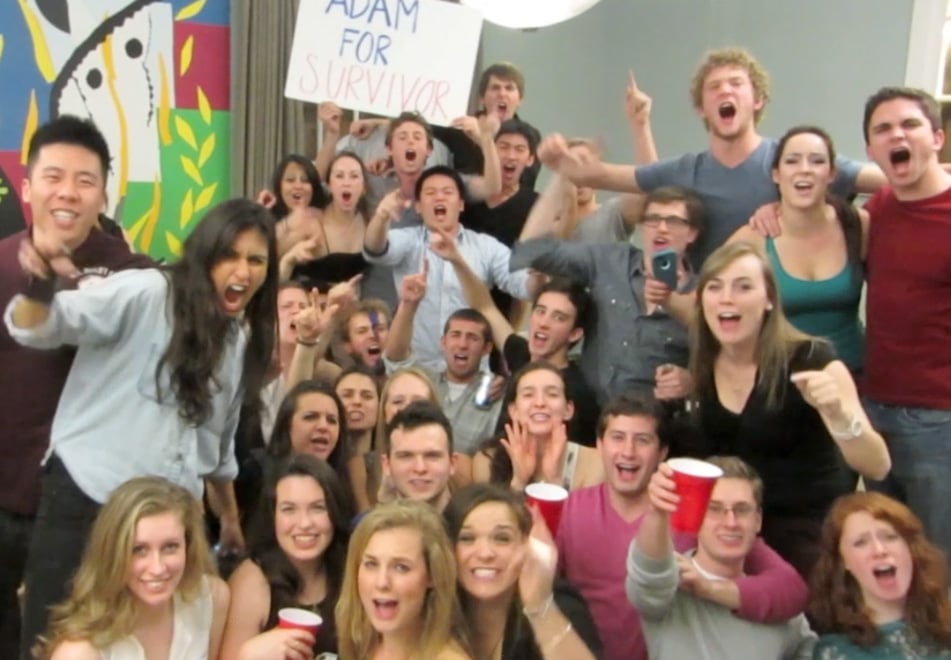Adam Klein ’13 appeared on and won CBS’s 33rd season of “Survivor.” This article is a follow up of an earlier Q&A with Klein from September 2016 before his unanimous win was announced. The Daily sat down with Klein to discuss the path to becoming the “Sole Survivor” and his recent work raising funds for lung cancer research.
The Stanford Daily (TSD): What was your favorite part about participating in Survivor?
Adam Klein (AK): Besides winning?
TSD: Aside from winning.
AK: Just being a part of the show that I’ve loved for so many years and getting to live it every day. While it’s a game, it’s also real life. And you’re out there 24/7 and you have to survive in the elements, and you’re making friends. You have to make friends to do well in the game. It’s a total competitive challenge. It’s mental, it’s physical, it’s strategic, and it’s emotionally taxing. I loved every minute of it.
TSD: If there is anything you could redo, what would it be?
AK: I have no regrets about the way that I played the game. I would be hesitant to change anything. It worked out pretty well for me. There were definitely mistakes I made along the way. What defined my game was that I built strong relationships.
TSF: What would be your ideal season theme if you could be on another season?
AK: It’s possible to have a game of just winners in the future. Even just the thought of playing a season against other winners of the game, [such as] Yul Kwon, who also went to Stanford, or Richard Hatch, the original winner, or Sandra Diaz-Twine, who has won twice, or Boston Rob, who has played four times – just the thought of that is pretty crazy for me, that I could one day play with all of my “Survivor” heroes.
TSD: Can you elaborate on your work raising funds for lung cancer research?
AK: My mom was extraordinarily healthy. She never smoked, worked out every day and ate really well. Somehow she got lung cancer, and I think lung cancer is a terribly underfunded disease. I think part of why it’s underfunded is the stigma behind it, that somehow you did something along the way – smoking or otherwise – to get lung cancer. The truth is that anyone can get lung cancer. My mom is the perfect example of that.
I don’t think there are there enough champions out there raising awareness of this disease and raising money for the research of it. I saw an opportunity here. I knew that we would be telling the story in front of millions of people and making my mom’s life and her disease more meaningful by helping out some other families and hopefully moving the needle forward on curing this disease.
I started raising money on YouCaring very shortly after my mom passed away. We raised over $50,000 through that campaign. During the reunion finale, we made the pitch to get viewers involved and donate as well. The viewing public donated over $160,000. In addition, the Bristol-Myers Squibb Foundation matched $100,000 of that, bringing it up to $260,000. I also donated $100,000 of my winnings from the show, raising it to over $360,000. [In total], we raised over $400,000 for lung cancer research.
TSD: How are you continuing your work today?
AK: My YouCaring campaign is still live. That money is going to the Stand Up 2 Cancer and the Bonnie J. Addario Foundation. I’m also raising money directly for Stand Up 2 Cancer and am meeting up with Lung Cancer Dream Team. I’m trying to use as much of this fleeting visibility from Survivor and dedicate it towards fighting this disease. The Stand Up 2 Cancer and American Cancer Society Lung Cancer Dream Team has some of the best lung cancer researchers working on one team. They are focusing on the mutation called KRAS positive mutation that is notoriously difficult to treat. It has very few options available in non-small cell lung cancer. It’s the exact kind of lung cancer my mom had. It’s very personal and very important that they find some answers for KRAS positive patients because there are so many of them and they deserve better options for treatment.
TSD: What advice would you give to future “Survivor” contestants?
AK: My advice would be to make friends. Make real relationships. And remember that while you’re playing a game, you’re playing with real people and real human emotions. If you can’t connect with people, and they don’t want you to succeed and don’t trust you as a human being, you’re going to have a hard time getting to the end. Even if you do get to the end, they won’t want to reward you with a million dollars and title of “Sole Survivor.”
This transcript has been condensed and lightly edited.
Contact Christina Pan at capan ‘at’ stanford.edu.
